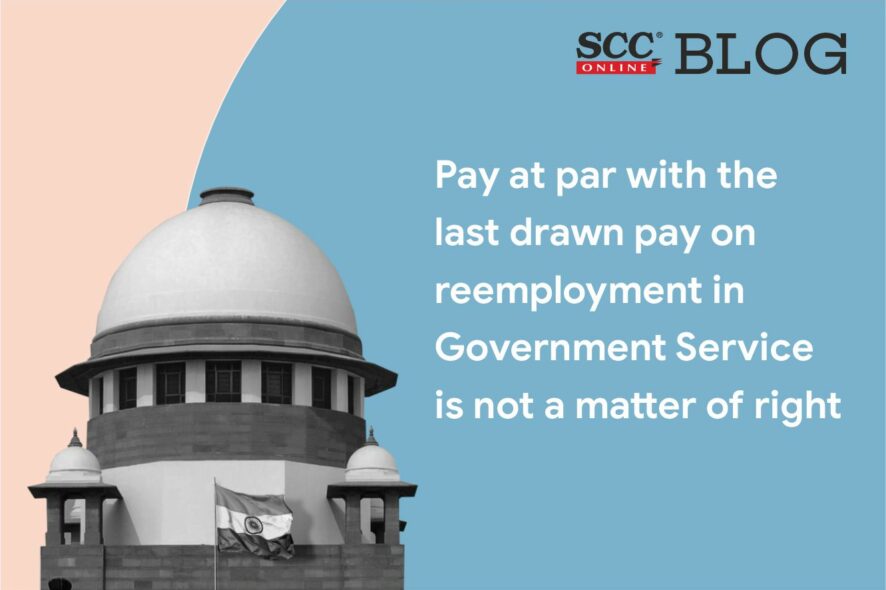Supreme Court: In a case where the bench of MR Shah* and BV Nagarathna, JJ was posed with the question as to whether on reemployment in the government service, an employee who was serving in the Indian Army/in the Armed Forces shall be entitled to his pay scales at par with his last drawn pay, it has been held that a claim for the last drawn pay in the armed forces is not a matter of right.
The issue revolved around the interpretation of Para 8 of the Central Civil Services (Fixation of Pay of Reemployed Pensioners) Order, 1986 [CCS Order]. The Court observed that as per the said provision, Emergency Commissioned Officer and a Short Service Commissioned Officer working in the Armed Forces on his employment to a civil post shall be entitled to advance increments equal to the completed years of service rendered in the Armed Forces on a basic pay equal to or higher than the minimum of the scale attached to the civil post in which they are employed. However, the pay arrived at should not exceed the basic pay last drawn by them in the Armed Forces.
Further, Para 8 of the CCS Order makes a reference to two rates of pay in case of emergency commissioned officers and short service commissioned officers being appointed in the government service:
First, they may be granted advance increment equal to the completed years of service rendered by them in the armed forces on a basic pay equal to or higher than the minimum of the scale attached to the civil posts in which they are employed. The pay is to be fixed with reference to the scale attached to the civil posts in which they are employed;
Second, while computing the pay in the aforesaid manner it should not exceed the basic pay last drawn by them in the armed forces. In another words, while computing the pay of the said officers who joined the civil posts their pay cannot exceed last drawn pay by them in the armed forces. In case it exceeds then it is capped to the last drawn pay in the armed forces.
The Court also explained that Para 8 of the CCS Order does not indicate that the pay last drawn by the re-employed person in the armed forces should be the pay to be computed when he joined the civil post. There is no entitlement of pay protection under para 8 of the CCS.
“The manner of computation of pay as envisaged under para 8 also clearly stipulates that the pay so arrived at should not exceed the basic pay (including the deferred pay but excluding other emoluments) last drawn by the respondent in the armed force. That does not mean that the respondent is entitled to a pay equal to what was last drawn by him in the armed force.”
The Court made clear that the reference to the last drawn pay in the armed forces is only to ensure that the pay computed in the civil post in the manner envisaged in para 8 of CCS Order does not exceed the basic pay (including the deferred pay but excluding other emoluments) last drawn by the personnel in the armed forces. For example, if the minimum of the scale attached to the civil post is higher than the last drawn pay of the personnel in the armed force and while computing the pay for the civil post as envisaged under para 8 of CCS if it so exceeds then possibly the last drawn pay in the armed forces could be paid. The said Rule prescribes fixation of a pay exceeding the basic pay (including the deferred pay but excluding other emoluments) last drawn by the personnel in the armed forces in respect of the civil post to which an exarmed force personnel is appointed. Thus, in a case where computation of pay exceeds last drawn pay in the armed forces then, in such a situation possibly the last drawn pay of such a personnel can be fixed.
[Union of India v. Anil Prasad, 2022 SCC OnLine SC 665, decided on 20.05.2022]
*Judgment by: Justice MR Shah
Counsels
For UOI: ASG Aishwarya Bhati
For Respondent: Senior Advocate Vinay Kumar Garg






